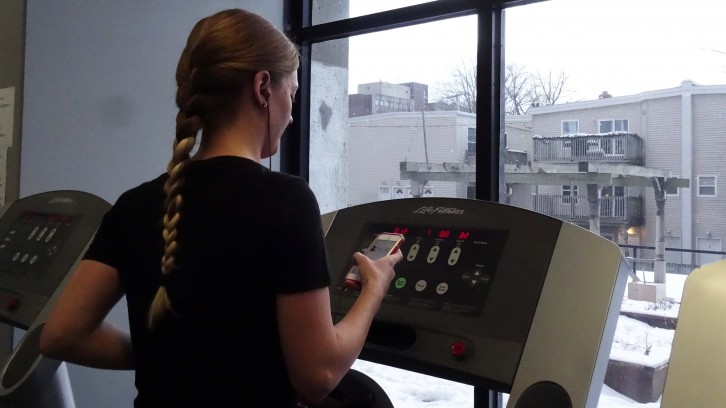Sport science
Music makes running fast feel easier: research
Dalhousie research suggests that running with music helps you go faster and can affect the speed of your recovery

caption
Running with music; does more than relieve boredom
caption
Running with music; does more than relieve boredomResearch from the kinesiology department at Dalhousie University suggests that listening to up-tempo music while you run does more than just stop you from getting bored — it also helps you train harder without feeling the extra effort.
In addition, listening to slow paced music after exercise helps an athlete return to a normal heart rate more quickly.
“For the average person, their main goal is they just want to increase physical activity,” says Derek Kimmerly, assistant professor of kinesiology at Dalhousie. “They want to burn more calories, that’s where the benefit of music can really come into play.”
Kimmerly wrote a paper published last year in The Journal Of Sports Medicine And Physical Fitness, which showed that, “listening to FM (fast tempo music) during exercise can increase self-paced intensity without altering perceived exertion levels, while listening to SM (slow tempo music) after exercise can accelerate the recovery rate back to resting levels.”
Working harder without realizing
Participants were asked to run as hard as they could on a treadmill for 20 minutes. They could control the speed, but didn’t know the actual value. While running, they would either listen to a playlist of fast tracks (125-145 beats-per-minute) or they would listen to static noise.
At intervals through the test, the runners would be asked how hard they felt they were working using a rate of perceived exertion scale.
In both cases — with and without the music — participants picked almost identical numbers on the scale, showing they thought they were working at similar levels. But when listening to the fast tempo music, they were actually running significantly faster than in the static noise trial.
Without realizing it, they were training harder.
People could either get more benefit from the same length workout or have shorter, more efficient training sessions, just by listening to music.
Controlling heart rate
The second conclusion of the study, showed that listening to slow tempo music (60-80 beats-per-minute) immediately after exercise, helped lower the heart rates of the participants to their normal levels faster than just listening to static sound. In short, it decreased the recovery time.
This effect could be beneficial for athletes if they have heats throughout a day for example, but it could also have medical uses.
“There are certainly some potential sport applications,” says Kimmerly. “I also think this could be a potential for cardiac rehab programs — people with heart failure. Again, if you’re doing intervals with them, you’re just trying to get them to recover quicker from their cardiac rehab session.”
Training applications
Scott Lawson usually listens to music on long runs as a distraction to break up the monotony of triathlon training. He says the results of the study don’t surprise him, as he often trains with fast tempo music when doing hard sessions.
Lawson, an experienced athlete with the Halifax Triathlon Club, says he would be interested in testing the conclusions of the study on interval training.
“You could find a piece of music that’s the correct length for however long you want to run for,” he says. “And then a slower song to have you heart rate go down quicker. You could get more done in less amount of time because you wouldn’t have to have the rest in there.”
But for Keith Colter, another member of the triathlon club, the conclusions of the study aren’t likely to alter his training.
“I do not run with music because I’m the type of person that once I get into a repetitive activity like running or swimming, my mind just goes into a zone – a different place. I don’t focus or hear anything else,” says Colter.
